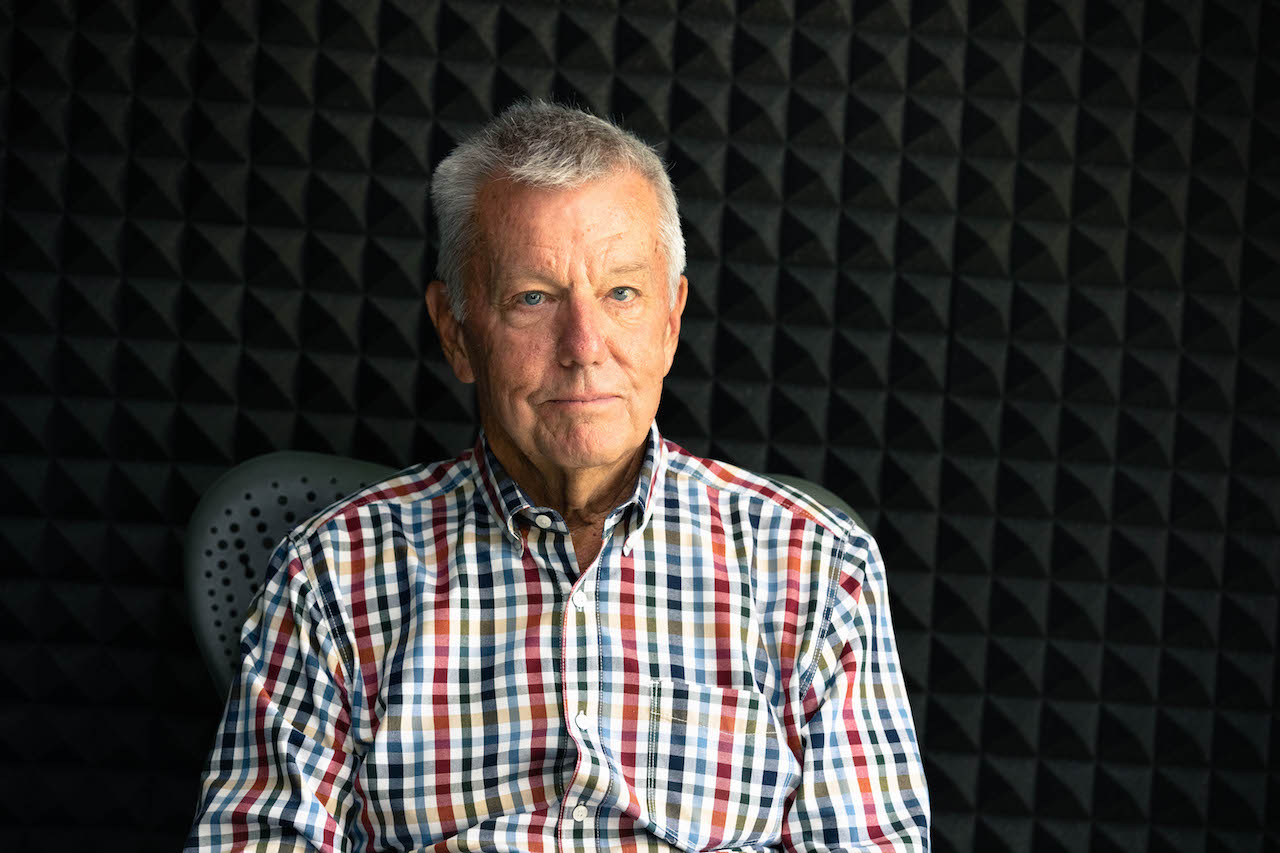+ Dr. Rob Johnston introduces Ecclesiastes as a book of paradoxes, holding two truths about life in tension: life is both utterly meaningless, and life is unfathomably precious.
 Robert K. Johnston is professor of theology and culture in Fuller’s School of Theology. He has published in a variety of fields, including theology, selected Old Testament topics, evangelical theology, theology and film, and theology and culture. He is a past president of the American Theological Society.
Robert K. Johnston is professor of theology and culture in Fuller’s School of Theology. He has published in a variety of fields, including theology, selected Old Testament topics, evangelical theology, theology and film, and theology and culture. He is a past president of the American Theological Society.

“Whether pleasure, or fame, or wisdom, or riches—none of those will produce a meaningful life.” – Rob Johnston
Transcript
Introduction to Ecclesiastes
Dr. Rob Johnston introduces Ecclesiastes as a book of paradoxes, holding two truths about life in tension: life is both utterly meaningless, and life is unfathomably precious.
As a professor of theology and culture, I’ve particularly been interested in how our culture stories interact with our stories and God’s story. That’s led me to concentrate for the last couple decades on film. What I found interesting is the number of movies that both say life sucks and life is precious. So, I wrote a book, “Useless Beauty,” in which I look at a number of our contemporary movies today and put them into dialogue with the Book of Ecclesiastes because I think the book helps interpret the movies and, interestingly, the movies help interpret the Book of Ecclesiastes.
I’m Dr. Rob Johnston. I teach in the area of theology and culture. Ecclesiastes has been really my life book of the Bible. Let me begin our brief conversation this morning by reading two texts. The first is the beginning of Ecclesiastes. “It is useless, useless,” said the Philosopher. “Life is useless, all useless. You spend your life working, laboring, and what do you have to show for it? Generations come and go but the world stays the same.” And, then, here’s the ninth chapter starting with verse 7. The writer says, “Go ahead. Eat your food and be happy. Drink your wine and be cheerful for God has already approved it. Always look happy and cheerful. Enjoy life with the woman you love, as long as you live this short life that God has given you. Enjoy every short day of it because that’s all you’ll get for your trouble.”
How in the world do we put these paradoxical, if not contradictory, statements together? The church hasn’t been very good at it, in fact. We don’t do well with messiness. On the other hand, the culture has loved this book. Why is that? Because it’s honest about life. We realize that the good and bad, for whatever reason, come together. We can’t isolate or separate or avoid.
The writer of Ecclesiastes knew about the Book of Proverbs. The Book of Proverbs says, “work hard and you’ll succeed.” But we also know that sometimes the good, honest, righteous person doesn’t succeed. Doesn’t live a long life. And we know that the rude and crude too often win. The writer of Ecclesiastes, therefore, challenges those Israelites in his day and those Christians in our day who think somehow we can orchestrate success. We can pull ourselves up by our own bootstraps. We can make our life meaningful by our own effort. Whether pleasure or fame or wisdom or riches—none of those will produce a meaningful life—vanity of vanity.
That word vanity, hebel, is hard to translate, isn’t it? It actually comes from the Hebrew which means a mist or a vapor and it can be used metaphorically to mean useless, absurd, meaningless, short, ephemeral. And the writer means all of those terms as he talks about our attempt to make life meaningful by our own effort—it’s vain.
On the other hand, the writer also says, “Enjoy life. It’s precious, it’s wonder filled.” We live the gift of life because God values it. He values our life. And, therefore, the writer can say, “Eat! Drink! Enjoy your spouse! Work with all your might!” Not to prove your worth but to express your worthwhileness. So, enjoy your vain, short, useless life. For it’s precious and wonder-filled. It’s to die for and thus to live for.
